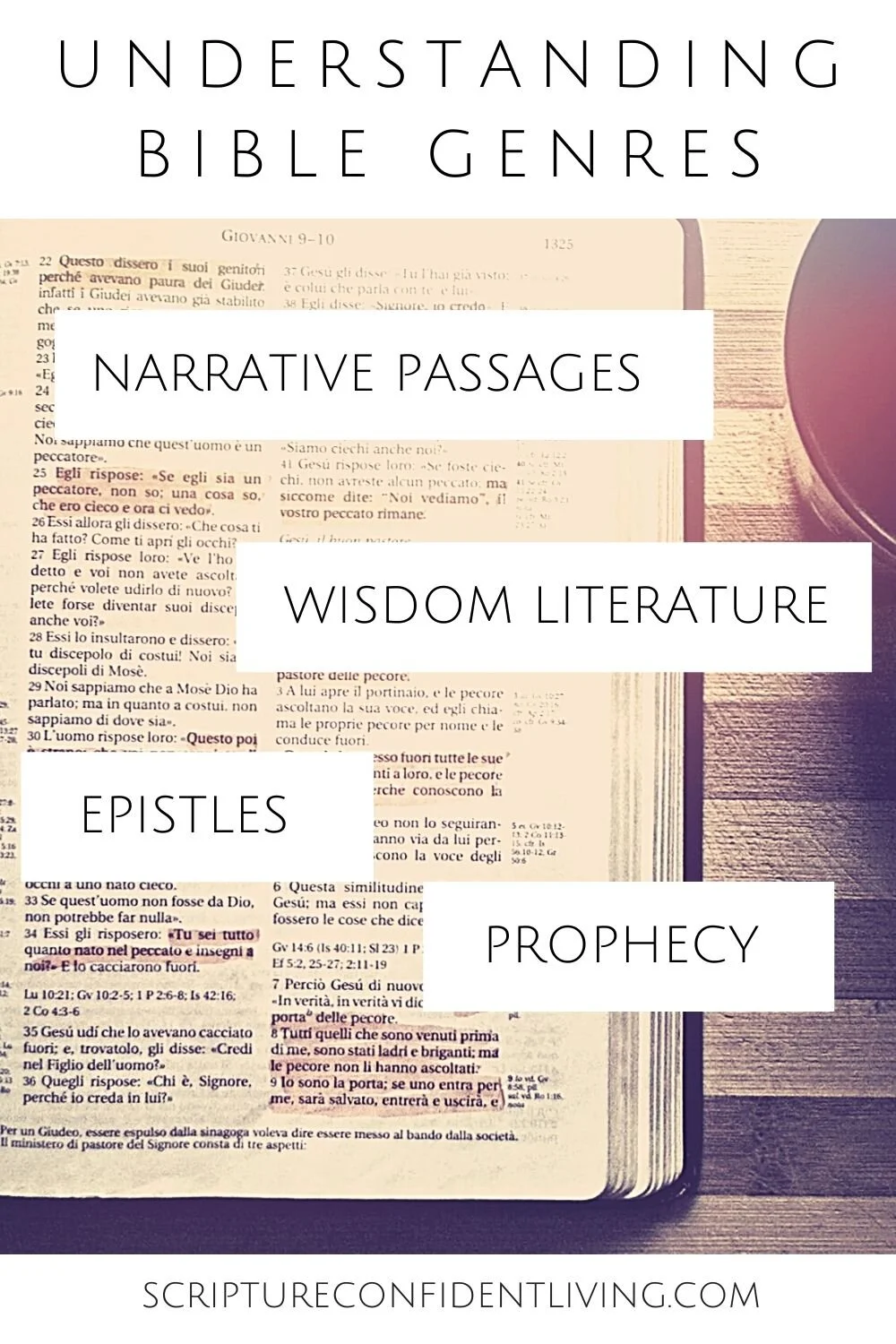Understanding Bible Genres
The Bible contains books in various genres. This knowledge greatly impacts how we interpret a given Bible passage. For example, we want to take narratives literally, believing they actually happened as described, while we will more carefully interpret poetry, which - like modern poetry - often describes true observations with figurative language.
Let's consider each of the genres of the Bible and how they flex our interpretation muscle.
Narrative Passages
A lot of the Bible is written in narrative including many of the Old Testament books and the much of the gospels. The book of Acts reads like a narrative, even though it is a letter. The great thing about these texts is that they are pretty straightforward. We can take them literally - so, yes, these miraculous events really happened. There is still some figurative language sprinkled thorughout, so keep that in mind.
Wisdom Literature
Wisdom literature like psalms and proverbs are full of this beautiful language, word pictures, and symbolic language. The truth is in the intended main thought rather than the literal expression. For example, Psalm 50:10 tells us that God "owns the cattle on a thousand hills." Does that mean he only owns the cattle on 1,000 hills? No, this word picture is expressing God's ownership over creation. It's unlimited. 1,000 should not be taken literally here; of course, he owns the cattle on more than 1,000 hills.
Similarly, in the New Testament, we see Jesus speaking in parables. These are stories He uses to explain truths about God’s kingdom. In Luke 15:8-10, Jesus is not telling a true story of a women He once knew who lost a coin. He is telling a story to illustrate a truth about God’s kingdom: God does not give up on us like the woman does not give up searching for her coin. The angels in heaven rejoice over a sinner who repents like the woman rejoices when she finds her coin.
Epistles
Much of the New Testament is epistles. These are letters written to churches or individuals by the apostles. As we read the authors’ encouragement and commands, we consider their message in its historical context, find the principle that is still true today, and apply it to our life.
Prophecy
Prophetic texts often contain dreams and visions that are hard to understand. To tell you the truth, even scholars disagree or are unsure about what some of them mean. Unless the Bible clearly lays out the meaning of the prophecy or we later see it come true, we can only do our best to understand these visions and dreams in light of the whole Bible and our best knowledge of the historical context. Some truths are hidden for a reason. For example, only God knows the day of Christ’s return.
Digging Deep into Scripture Made Easy
Determine what genre you are reading before making any interpretive decisions. This may seem obvious at first but it’s easy, for example, to take a proverb literally without first considering that these sayings are not commands found in a narrative. So don’t skip this step.
Now, tell me, are you running into any trouble determining the genre of a Bible passage? Are you unsure if something is meant literally or figuratively? Let me know in the comments below. I'd love to help.

